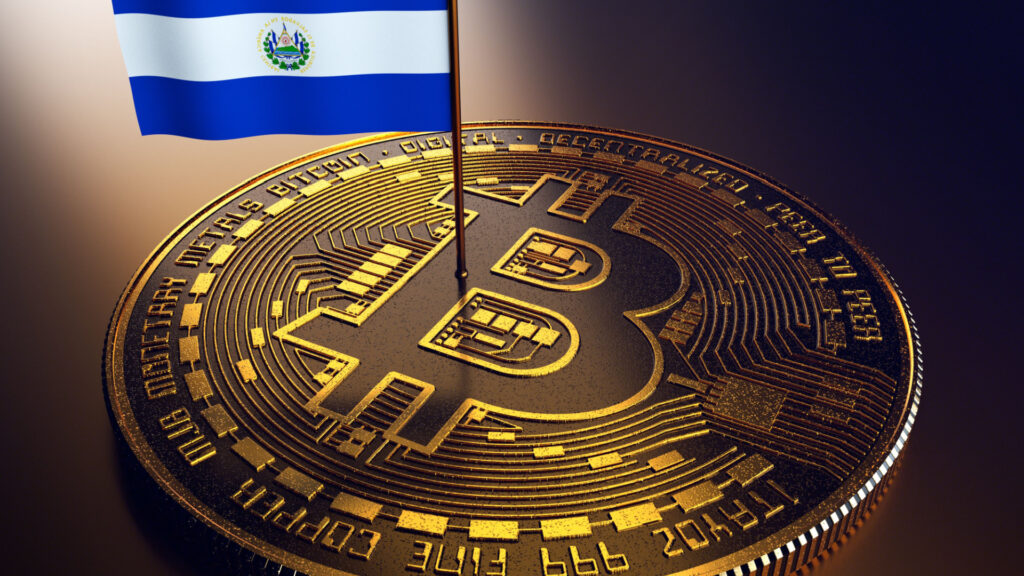In its cryptocurrency odyssey, El Salvador, the first country to use Bitcoin as legal tender, has achieved yet another significant milestone. The nation is currently the sixth-largest Bitcoin holder in the world, having accumulated over 6,000 Bitcoin. This accomplishment demonstrates the wider ramifications of Bitcoin adoption nationally and demonstrates El Salvador’s dedication to incorporating Bitcoin into its economy.
An Audacious Bitcoin Plan
President Nayib Bukele declared in September 2021 that Bitcoin will be accepted as legal tender alongside the US dollar, marking the beginning of El Salvador’s involvement with the cryptocurrency. Reactions to the move were divided around the world, with some applauding the innovation and others cautioning about possible economic hazards.
President Bukele has often announced Bitcoin purchases on social media, emphasizing the “buying the dip” tactic. El Salvador has been able to build up its Bitcoin reserves at comparatively lower prices thanks to this strategy, indicating a long-term outlook for the asset’s potential.

Significance of 6,000 Bitcoin
For El Salvador, reaching the 6,000 Bitcoin milestone is a noteworthy accomplishment. This position accounts for a sizeable amount of the nation’s financial reserves at current market values. El Salvador’s Bitcoin holdings, for instance, are currently equal to or greater than those of a number of private companies and even certain national treasuries.
Additionally, the fact that more than 6,000 Bitcoins have been amassed shows how confident the nation is in the cryptocurrency’s future. It strengthens El Salvador’s standing as a leader in using Bitcoin and might encourage other countries to consider the same tactics.
El Salvador’s Economic Impact
Bitcoin is now a crucial component of El Salvador’s economic plan. To encourage its use, the government has started a number of programs, such as the Chivo Wallet, a state-backed digital wallet made to make Bitcoin transactions easier. The wallet allows users to save Bitcoin as an investment, transmit money back and forth, and pay for goods and services.
Additionally, the acceptance of Bitcoin has drawn interest from around the world, establishing El Salvador as a centre for blockchain businesses and cryptocurrency enthusiasts. Establishing a geothermal-powered Bitcoin mining facility and introducing the “Bitcoin City” project, a tax-free area designed to encourage investment and creativity, are two examples of the government’s initiatives to create an environment that supports Bitcoin.
Obstacles and Remarks
Although revolutionary, El Salvador’s Bitcoin experiment has not been without difficulties. The price volatility of Bitcoin and its possible effects on the national economy have drawn criticism. For example, significant drops in the value of Bitcoin could put pressure on public finances and lower the purchase power of the country’s reserves.
El Salvador’s overreliance on Bitcoin has also drawn criticism from the International Monetary Fund (IMF) and other international financial organizations. Citing consumer protection and financial stability threats, the IMF has encouraged the nation to change its position.
Worldwide Consequences
El Salvador has amassed more than 6,000 Bitcoins, which has wider ramifications for the world Bitcoin market. It shows that nation-states have the ability to actively engage with the Bitcoin ecosystem and may have an impact on market dynamics. Cryptocurrencies may become more widely used and increasingly validated as a worldwide asset class if more nations take El Salvador’s example.
Furthermore, other developing countries looking for alternatives to established banking systems can use El Salvador’s Bitcoin experiment as a case study. These nations might lessen their dependency on foreign currencies, cut remittance fees, and encourage financial inclusion among unbanked people by utilizing Bitcoin.
El Salvador Path Ahead
The emphasis will probably move to optimizing the returns on its investment as El Salvador keeps increasing its Bitcoin reserves. Proposals like the Bitcoin bonds, a financial product backed by the nation’s Bitcoin holdings, may open up new avenues for economic expansion.
A long-term vision that goes beyond Bitcoin accumulation is demonstrated by the government’s dedication to infrastructure initiatives like Bitcoin City and mining facilities fueled by renewable energy. These programs seek to establish an inventive and sustainable ecosystem that will make El Salvador a world leader in using cryptocurrencies.
Also Read: Bitcoin Hits $100,000 on Mt Gox Moves $2.8 Billion
Conclusion
The fact that El Salvador now has more than 6,000 Bitcoins highlights the nation’s audacious and innovative approach to cryptocurrencies. Despite ongoing difficulties, the country has distinguished itself as a leader in the field of digital assets due to its unshakable dedication to Bitcoin.
The success or failure of El Salvador’s Bitcoin experiment will surely impact future national cryptocurrency acceptance as the world watches. For the time being, El Salvador’s position as one of the nations with the largest Bitcoin holdings confirms its significance in the continuous development of international finance.

